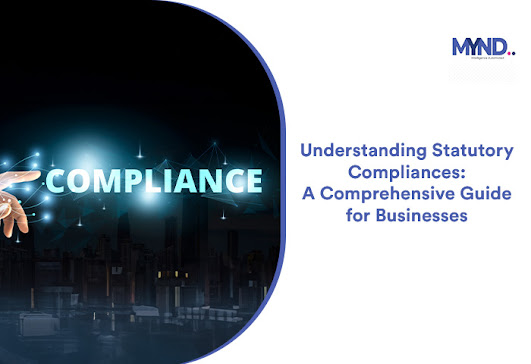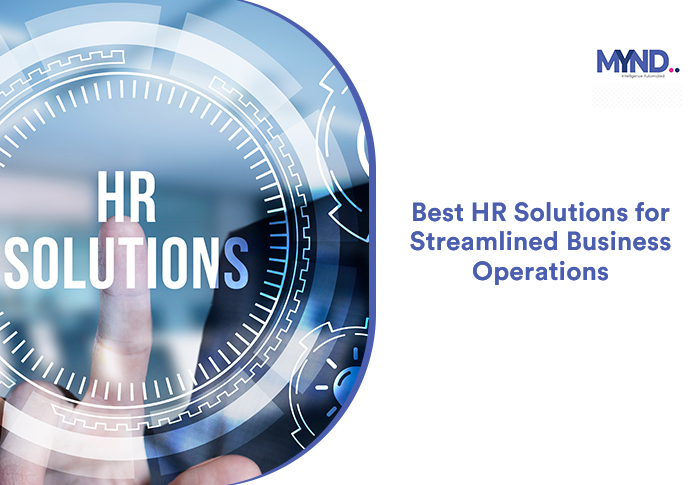Understanding Statutory Compliances: A Comprehensive Guide for Businesses

Understanding Statutory Compliances: A Comprehensive Guide for Businesses
Statutory compliance refers to an organisation's adherence to government-mandated rules
and regulations. This encompasses a broad spectrum of legal requirements,
including labour, tax, data privacy, and environmental laws. Non-compliance can
result in severe financial penalties, reputational damage, and legal
repercussions. This blog post will help in understanding statutory compliances
more.
Statutory Compliance In HR
Statutory
compliance in HR is crucial, as it ensures that businesses adhere to legal and ethical
guidelines. These guidelines control employee rights and workplace practices.
Businesses that maintain compliance can protect themselves from penalties and
lawsuits. By doing this, they also promote the welfare of their employees.
The
HR department is often in charge of overseeing HR compliance. HR professionals
stay up-to-date on the latest employment laws and health and safety regulations
to ensure compliance. HR specialists are also responsible for:
●
Developing and putting into
practice compliant policies and processes
●
Educating managers and staff
●
Resolving compliance-related
concerns as they arise
Statutory
compliance in HR in India is an amalgamation of
labour rules derived from both national and state legislation. The Industrial
Disputes Act of 1947, the Factories Act of 1948, etc. are some examples of
these laws.
Statutory Compliance in
Payroll
Payroll
can seem like a straightforward process for calculating wages and disbursing
funds. Nevertheless, ensuring adherence to various regulatory standards is a
crucial part of payroll management. If employers don't comply, there may be
severe fines, penalties, and even legal repercussions.
Wage
and hour compliance, minimum wage, etc. are some key areas of statutory
compliance in payroll.
Challenges to Statutory
Compliance
1. Consciousness
A
lot of organisations don't fully understand the significance and advantages of
adhering to the law. Due to this reason, they frequently disobey the rules,
which leads to costly penalties or legal action.
2. HR-Segmented Projects for Statutory Compliance
Many
Indian organisations operate with multiple departments handling distinct
business functions. This departmental segmentation often hinders effective HR
compliance management due to inconsistencies and inefficiencies.
3. Changing Scenery
The
Indian legislative compliance landscape is dynamic. With new laws arising so
often, it becomes challenging to be informed and compliant with all
regulations.
Strategies for Ensuring
Statutory Compliance
HR
●
Seek Expert Advice: Partner with
certified HR consultants or labour lawyers to stay updated on legislative
changes and receive expert guidance.
●
Teach HR Staff: Regular training is
essential to equip HR teams with the latest knowledge of labour laws and
regulations, ensuring ongoing compliance.
Payroll
●
Remain Up to Date: It is essential for
employers to be aware of any changes regarding labour laws and tax legislation
that can impact payroll. They can do this by going to workshops or seminars
that are pertinent.
●
Invest in Payroll Software: Tax
computations, filing deadlines, and recordkeeping are just a few of the
compliance duties that modern payroll software streamlines (it will be
discussed more about later). Select a software vendor who has a solid history
of providing compliance-related services.
●
Consult with experts: For advice on
intricate laws or needs unique to your sector, think about collaborating with a
payroll compliance professional.
●
Frequent Internal Audits: To find any
holes in their payroll procedures and make sure all legal requirements are
being followed, employers should regularly carry out internal audits.
Statutory Compliance
Management Software
Many
organisations are now using statutory
compliance management software to expedite statutory compliance
processes. Businesses can generate reports, monitor deadlines, and guarantee
regulatory compliance with the use of this technology. Besides, such software
lowers the possibility of mistakes and increases overall productivity by
automating repetitive processes.
Mynd
Integrated Solutions has been providing top-notch compliance management
services for nearly two decades. It provides services for compliance management
under the category of HR solutions. In doing so, it offers solutions for labour
law compliance, delivering a full range of services customised to meet the
unique requirements of its clients. The staff is well-versed in labour
legislation pertaining to different businesses. In order to provide compliance
methods that are compliant with local laws, it takes into account the business
location and jurisdiction.
Furthermore,
Mynd provides customers with risk management techniques and aids in achieving
statutory conformity in all areas of labour law.
Its
extensive process understanding and track record of providing quality services
guarantee that customers can confidently manage complicated laws. Its services
are more than just box-checking. It helps in enhancing risk mitigation,
maximising financial capital management, and cutting down on
non-compliance-related expenses.



Comments
Post a Comment